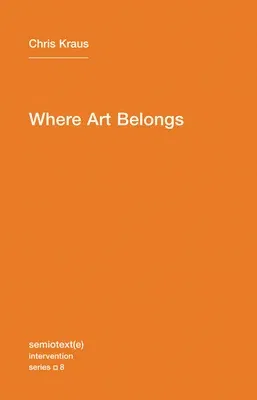Chris Kraus
(Author)Where Art BelongsPaperback, 21 January 2011

Qty
1
Turbo
Ships in 2 - 3 days
Only 2 left
Free Delivery
Cash on Delivery
15 Days
Free Returns
Secure Checkout

Reading Age
Ages: 18
Grade Levels
13
Part of Series
Semiotext(e) / Intervention
Part of Series
Semiotext(e) Intervention (Numbered)
Print Length
176 pages
Language
English
Publisher
Semiotext(e)
Date Published
21 Jan 2011
ISBN-10
1584350989
ISBN-13
9781584350989
Description
Product Details
Audience:
Ages: 18
Author:
Book Format:
Paperback
Country of Origin:
US
Date Published:
21 January 2011
Dimensions:
17.78 x
11.68 x
1.27 cm
Educational Level:
Grade Levels: 13
Genre:
20th Century
ISBN-10:
1584350989
ISBN-13:
9781584350989
Language:
English
Location:
Cambridge
Pages:
176
Publisher:
Weight:
158.76 gm